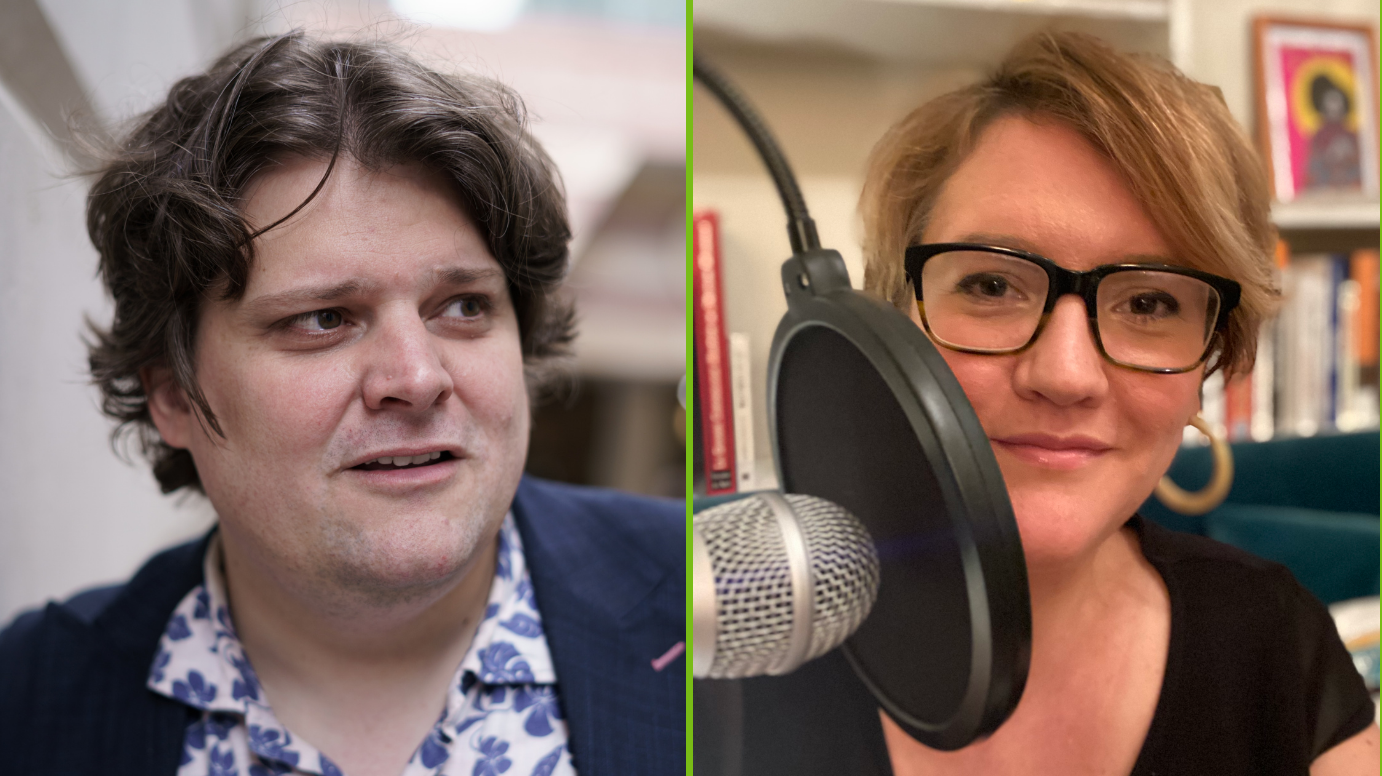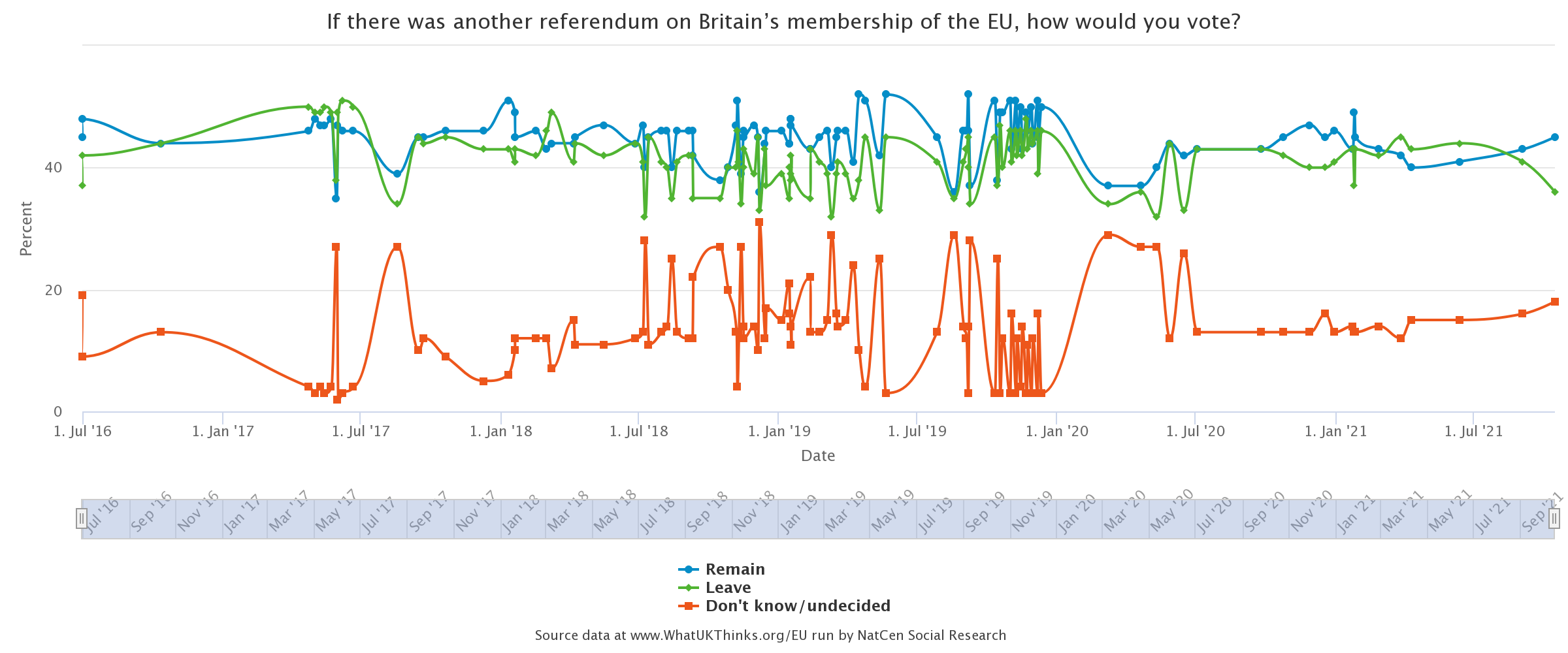
Empire, Churchill and killing monarchs: footnotes on my conversation on (not quite) everything with Jonn Elledge
I can't possibly summarise the latest episode but I can add plenty of footnotes.
As is bound to happen when you invite onto your podcast a man who writes a whole book of unconnected trivia, the latest episode of Borderline with Jonn Elledge is unsummarisable. Jonn and I ran the gamut from the birth of the nation-state to geopolitics in Star Trek, "would Brexit pass today?" to "is there such a thing as France anyway?", why our respective countries can't talk calmly about empire and which of us killed the most kings and queens. (Them, definitely them.) But while I can't sum it up for you and strongly recommend you listen to the whole hour, I can provide you with footnotes, sources and fact checks for some of the things we discussed. Here goes.
📚 Borderline now has a bookstore! Find every book featured on the podcast and more personalised recommendations from me, and support this independent media. Low prices for you and 10% back to Borderline. None for Amazon. Check it out.
🇳🇷 Nauru is the most fascinating place you’ve never heard of. The world’s third smallest country – the size of an international airport – was once its second richest per capita thanks to precious phosphate deposits. But it was strip mined to exhaustion, leaving behind a barren wasteland and near total unemployment. The country briefly turned to selling passports and sheltering money launderers, as island nations are wont to do. Today Nauru has one industry – detention. But it knows it must diversify and has clearly learned its lessons: Nauru is betting its future on… deep sea mining.
🇦🇺 Unbeknownst to many in Europe, Australia is the original inspiration for intransigeant refugee policy. No one who arrives there without pre-authorisation will be allowed to settle in the country. Period. Boats are turned back or captured, and asylum-seekers sent to an “offshore processing centre” on Nauru. (There was another centre in Papua New Guinea but that country ended the agreement. Nauru, however, just re-upped its deal indefinitely.) That’s a euphemism for indefinite detention with little hope of resettlement anywhere. Medical attention is minimal, abuse rife, and the press cannot get access. The rate of childhood suicide is through the roof. About 1,400 people, most recognised as legitimate refugees, remain in limbo because of Australia’s policy, according to UNHCR. Australia is the size of 366,285 Naurus.
“This is the opposite virtue signalling – vermin-signalling someone once called it. It's deliberately incredibly supervillain.”
🇬🇧 Would Brexit pass today? As much as I'd like to say no, it's not that easy. In polls where Brits are asked “If the referendum were held today, how would you vote?”, Remain wins fairly consistently. But the gap is narrow and there are still more than enough undecided voters to swing the results either way. Schadenfreude aside when the news shows a Leave voter crying into his fishing net, the truth is the UK is still profoundly divided on the issue.

“My grand unified theory of Brexit is that however the vote had gone in 2016, our long-term destiny is to end up in the single market, but not in any political union. There will at some point be a country called Europe and Britain would not want to go into that. But the economic logic of being part of the single market will over time become overwhelming.”
👨🏻🏫 In turn of the (previous) century France, school teachers were missionaries for the Republic. In a country where religious and royalist sentiment was still strong – there were six monarchies or empires after the 1789 revolution – teachers were tasked with building a nation. They were village by village, neighbourhood by neighbourhood the secular response to the moral authority of the Catholic Church. For 8 hours a day teachers moulded children away from the archaic influence of their family and the local priest. On the curriculum: national myth-making, the French language (many families still spoke local patois), and liberté, égalité, fraternité. Teachers were eventually dubbed “Black Hussars of the Republic,” in reference to the famed special forces. They themselves are now part of the national myth. The belief still holds: society, not just families, decides what values are transmitted to the next generation. The thought, I’m sure, would horrify every American parent.
🇫🇷 Who are the French anyway? School taught us we were all descendants of Celtic Gaul. That’s debatable. There is no such thing as a French ethnicity; France is a nation built around a set of values, a culture and a fiercely defended language. The Franks were just one of the many barbarian tribes around, and they happened to win circa 500. The first French kingdom was actually in Belgium. France has been everything from a tiny speck of land to half of Europe. And that’s before we even consider overseas territories…
👑 Who of Britain and France was the meanest to its monarchs? Let’s limit ourselves to the modern era. The French famously guillotined Louis XVI and his wife Marie Antoinette in 1793. That’s it. (If you insist, both Henri III and Henri IV were assassinated by religious fanatics at the turn of the 17th century.) England, for its part, beheaded Charles I in 1649. It’s a tie on executing reigning monarchs. That’s if you don’t count Mary Queen of Scots, beheaded by England. But then… Richard II was deposed, imprisoned and later probably starved to death. Henry VI was deposed, imprisoned and probably murdered. Edward II was probably murdered. Edward V and his brother Richard were mere children when they were disappeared in the Tower. And who could forget Henry VIII’s three beheaded queens, Ann Boleyn, Catherine Howard and Lady Jane Grey, all of 16 years old. Just saying.
🏰 Some would rather not think about where the sugar in their cream tea comes from. I’m a sucker for a pretty house, an autumnal walk in a deer park and pretending I’m the lady of Downton Abbey. So I’m a National Trust member. Do I enjoy being reminded this wealth was built on the back of enslaved people? Not particularly. But what serious institution charged with the preservation of history could ignore it? Last year, the National Trust released a staggering work of accountability, detailing the connections to slavery and colonialism of 93 of its properties, including Churchill’s Blenheim Castle. Much aristocratic British wealth was built in Jamaican sugar plantations and in the triangular Atlantic trade. Churchill was far from perfect too. That’s not a pretty image in the mirror so cue the culture wars.
“I think World War Two is a big part of our national psychosis. That was a point in which Britain was unequivocally on the right side. And it basically burnt up its empire and its status as a global power to help save the world from fascism. But it means that's the narrative we get instead of the reckoning with the end of empire. I think that does explain not quite all but almost all of the politics of Brexit.”
Show notes
00:00:00 Intro
00:02:52 How one of the world's largest countries dumps its migrants on one of the world's smallest
00:05:25 Insular news and why you may never have heard of Nauru
00:07:12 A worldwide obsession with US news
00:08:34 It's appalling how little we knew or know about the EU
00:10:17 How Brexit gave rise to a pro-EU movement
00:13:00 We're finding geopolitical solutions in Star Trek
00:15:12 The nation-state is such a recent mythology
00:19:46 Countries that think too highly of themselves
00:26:02 How WWII mythology shapes current politics
00:31:31 Poppy season is upon us
00:33:32 Sign up for the new newsletter
00:35:02 Could we create a global nation state?
00:37:00 French identity, multiculturalism and things I pretend to be an expert in
00:44:20 Britain stopped showing its best features
00:56:50 Outro
📬 Sign up for Jonn's Newsletter of (Not Quite) Everything.
🎙 Listen to Jonn's Podcast of (Not Quite) Everything.
📚 The Compendium of (Not Quite) Everything, by Jonn Elledge. Headline, 2021. Buy it here and support Borderline.
Hey, you read to the end!
Don’t miss future articles like this one; let me into your inbox.






